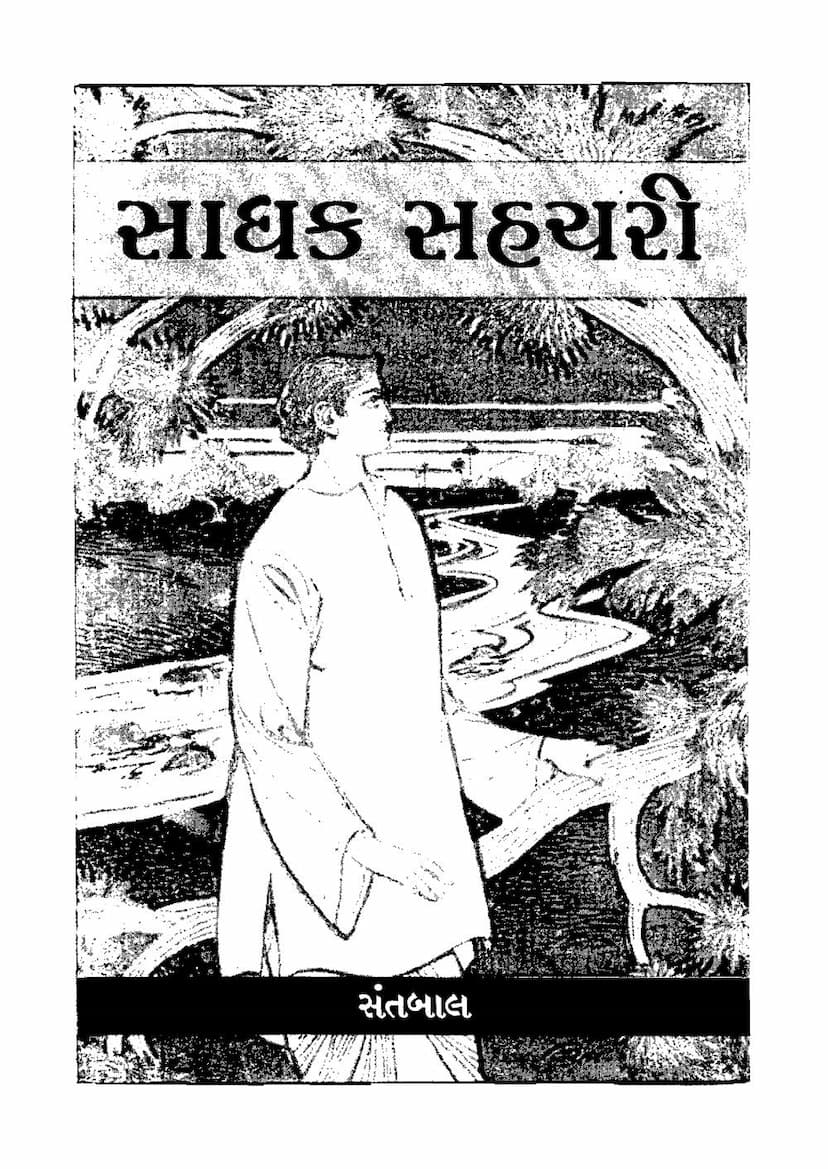Sadhak Sahachari
Added to library: September 2, 2025

Summary
This Jain text, "Sadhak Sahachari" by Santbal, published by Mahavir Sahitya Prakashan Mandir, Ahmedabad, is a compilation of essential teachings and verses from important Jain scriptures like Uttaradhyayan, Dashavaikalik, and Suyagadaang. The author, Santbal, has extracted valuable verses from these ancient texts, originally in Ardhamagadhi, and presented them in Gujarati verse, along with their meanings.
The book is intended as a guide and companion for all spiritual seekers (sadhaks), whether they are ascetics (shramans) or householders (grihasthas). The title "Sadhak Sahachari" itself means "Companion for the Seeker," emphasizing its role in supporting the spiritual journey of both monks and lay practitioners.
Key aspects of the book, as described in the introductions and table of contents, include:
- Essence of Jain Teachings: The book draws from the core principles of Jainism, particularly focusing on truth (satya) and non-violence (ahimsa), which are presented as the essence of all religions and a path to world peace.
- Compilation of Verses: It contains approximately 180-190 verses, meticulously selected and categorized into 14 sections. These sections cover various aspects of spiritual practice and ethical living, including:
- Sadhak Varg (Class of Seekers): Focuses on self-control (sanyam), discipline, and the qualities of a true spiritual aspirant.
- Atma Varg (Class on the Soul): Explores the nature of the soul, its bondage, and the path to liberation.
- Dharma Varg (Class on Dharma/Righteousness): Defines true Dharma and the characteristics of a righteous person.
- Vikas Varg (Class on Development): Outlines the stages of spiritual growth, comparing it to the development of a tree.
- Vrat Vichar Varg (Class on Vows/Practices): Discusses important vows like non-violence, truthfulness, non-stealing, celibacy, and non-possession, along with the reasons for their practice.
- Brahmacharya Varg (Class on Celibacy): Emphasizes the importance of celibacy and the ways to maintain it.
- Shuddhi Varg (Class on Purity): Clarifies the nature of purity, distinguishing between external rituals and internal purification.
- Shraman Varg (Class on Ascetics): Defines the true nature of an ascetic, their conduct, and responsibilities.
- Karma Varg (Class on Karma): Explains the workings of karma, its influence on the soul, and the consequences of actions.
- Vishva Varg (Class on the Universe): Touches upon the nature of the universe and the cycle of existence.
- Vairi Varg (Class on Enemies): Identifies internal enemies like anger, pride, deceit, and greed.
- Paap Shraman Varg (Class on Sinful Ascetics): Warns against those who misuse the ascetic path for personal gain.
- Jati Varg (Class on Caste/Species): Discusses the concept of spiritual lineage and the irrelevance of birth-based caste in spiritual attainment.
- Shiksha Varg (Class on Teachings/Lessons): Offers practical advice and philosophical insights for spiritual progress.
- Emphasis on Sanyam (Self-Control): The book consistently highlights the paramount importance of self-control in all aspects of life, for both ascetics and householders, as the means to achieve happiness and spiritual progress.
- Guidance for Spiritual Practice: Each verse is accompanied by its Gujarati verse translation and a brief explanation of its meaning and significance, making it accessible to a wider audience.
- Historical Context: The book's preface by Santbal reflects on the contemporary spiritual landscape, the need for such literature, and the role of Gujarat in promoting spiritual values. It also draws parallels between the revolutionary era of Lord Mahavir and the modern Gandhian era.
- Comparison with Other Religions: The book includes comparative discussions on core Jain principles like Ahimsa, Sanyam, and Tapas with those found in Buddhism and Vedic traditions, highlighting commonalities and distinctions.
- Rejection of Ritualism: The text critiques blind adherence to rituals and emphasizes the importance of inner purity, ethical conduct, and genuine spiritual realization over mere external observances.
- Holistic Approach: The book addresses various aspects of life, from ethical conduct and spiritual discipline to the nature of the soul and the universe, providing a comprehensive framework for spiritual seekers.
In essence, "Sadhak Sahachari" is a profound and practical guide that aims to illuminate the path of spiritual realization for all seekers by distilling the timeless wisdom of Jain scriptures into accessible verses and explanations. It serves as a constant companion, offering inspiration, guidance, and ethical principles for a meaningful spiritual journey.